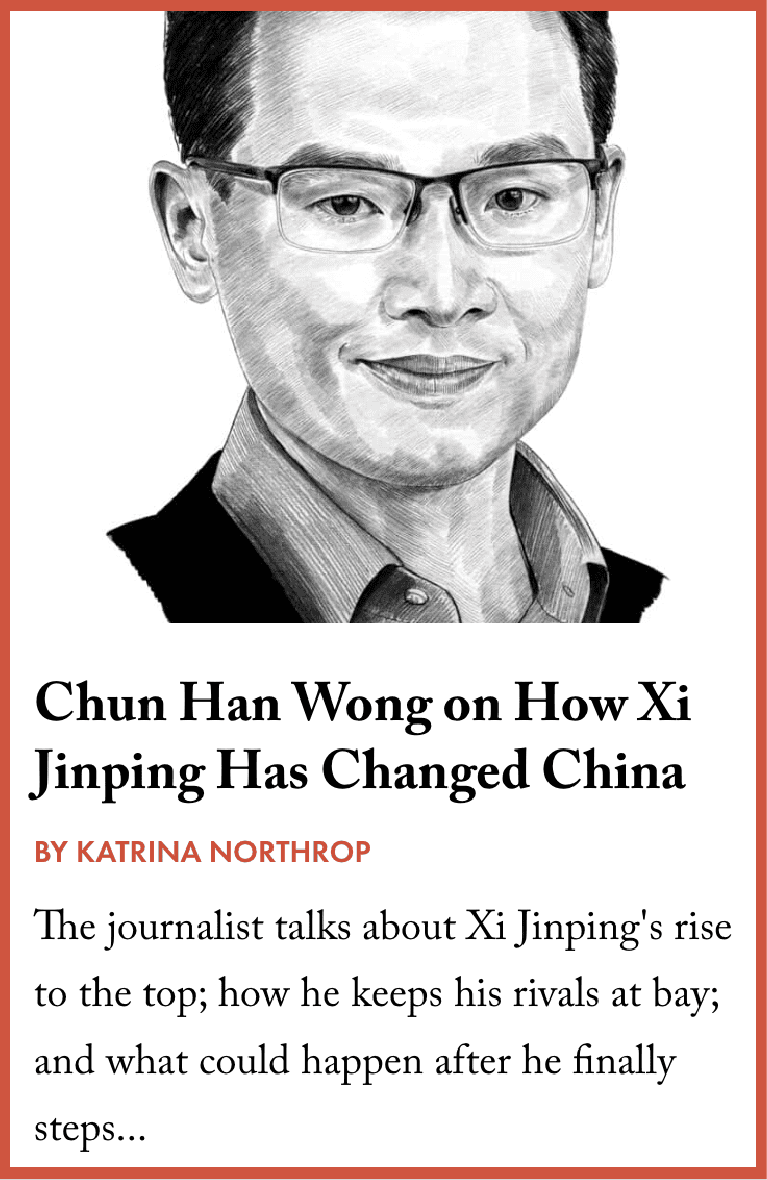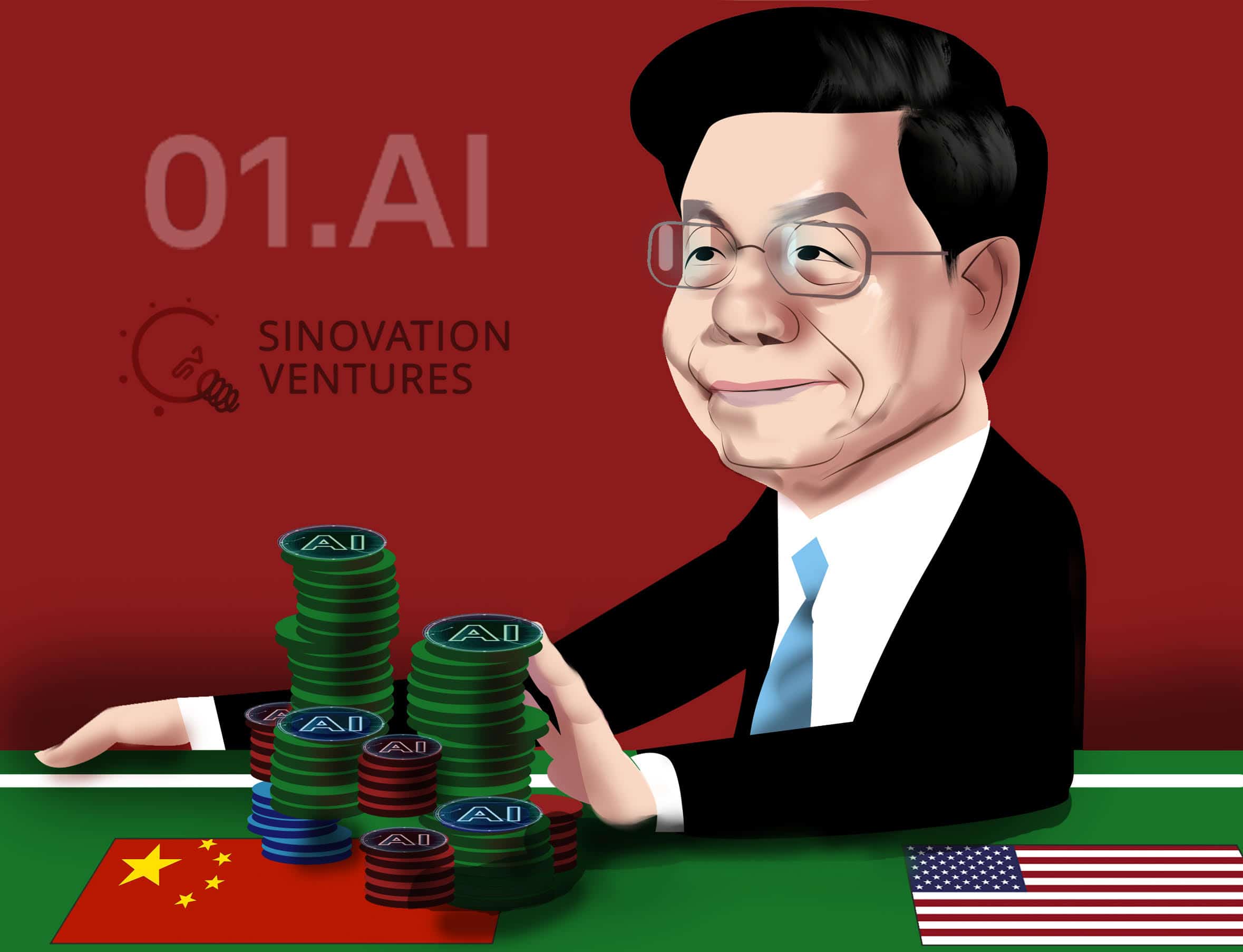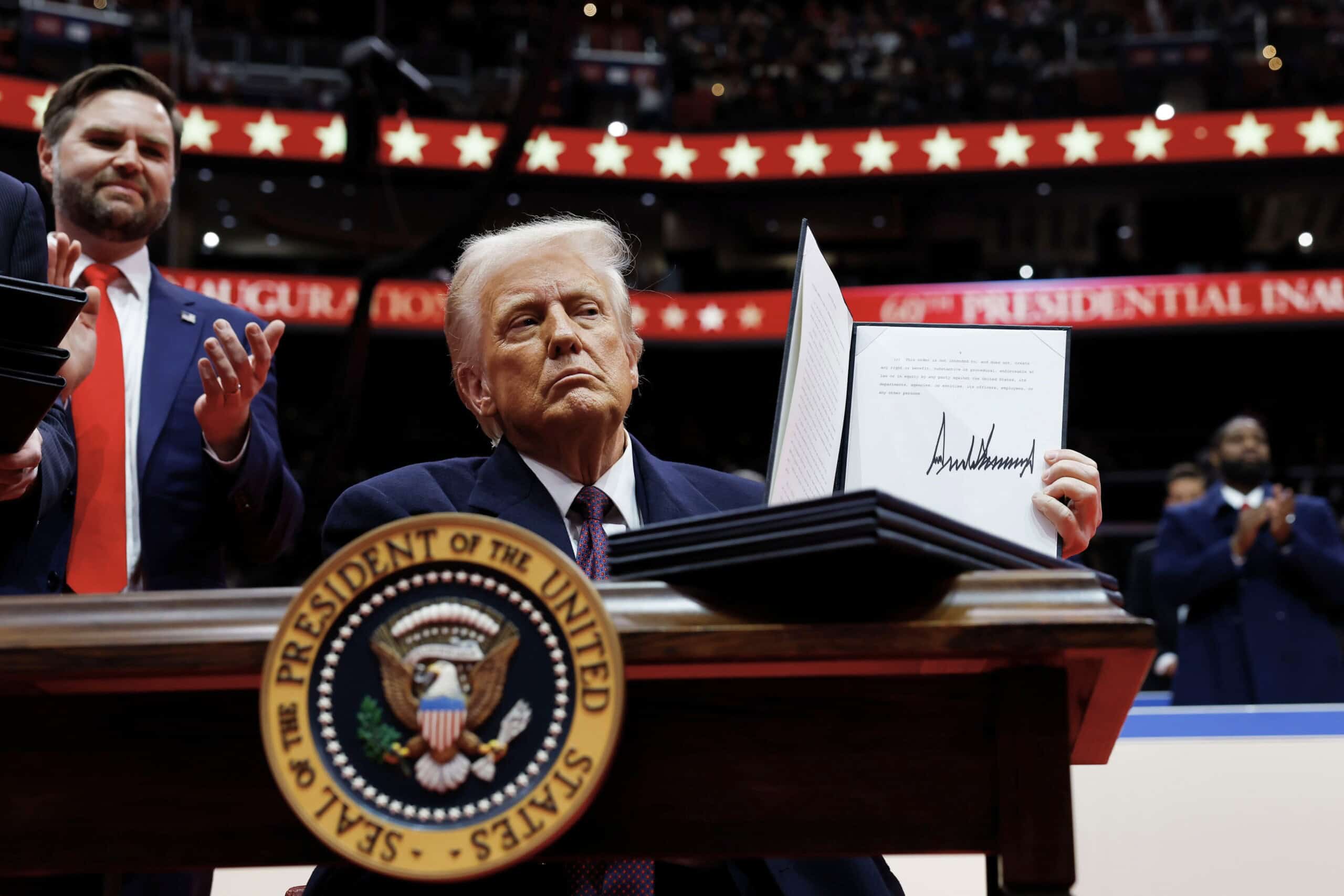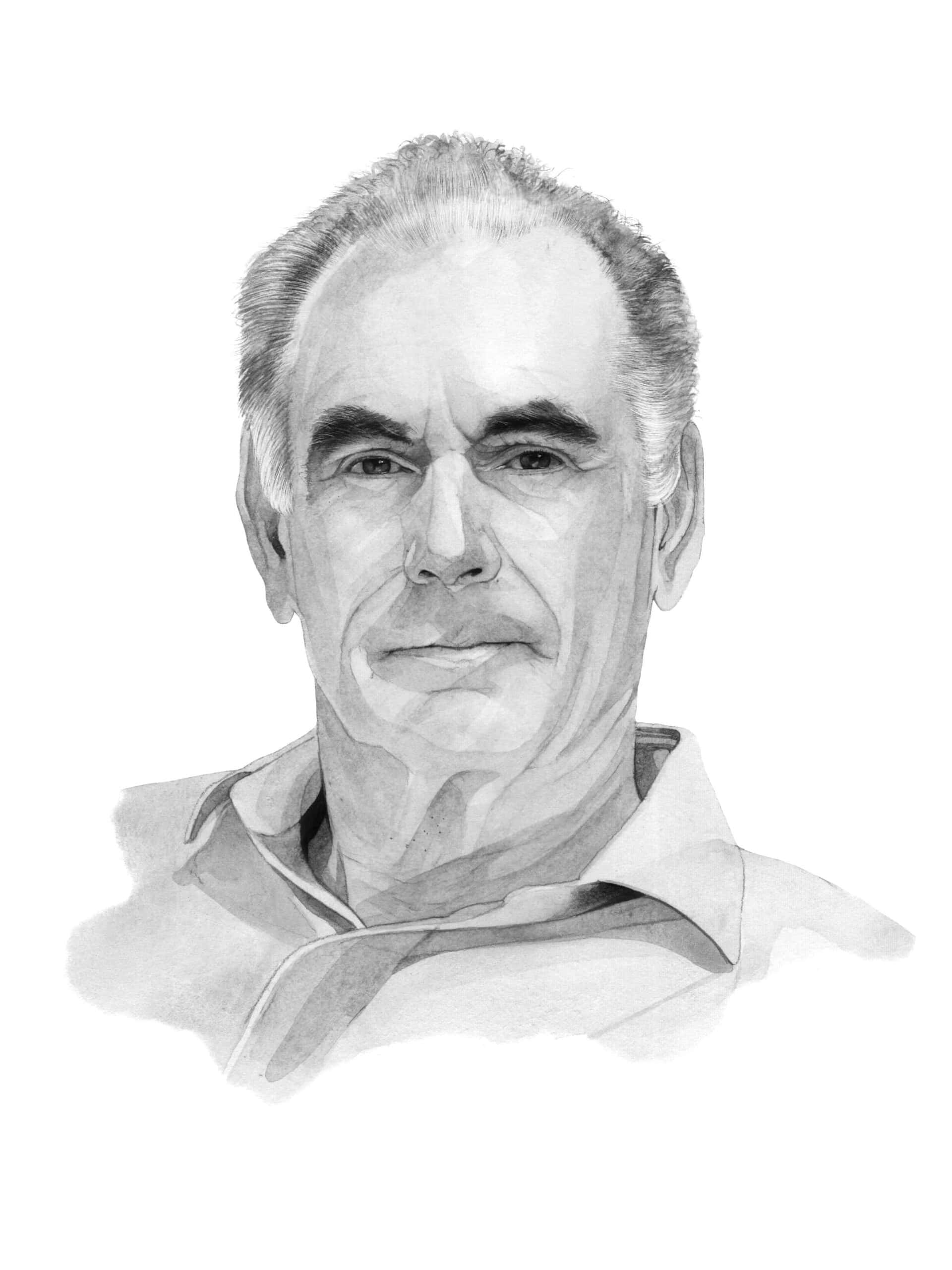Robert Daly is director of the Kissinger Institute on China and the United States at the Woodrow Wilson Center for International Scholars. He has 35 years’ experience working on political, cultural, and academic aspects of U.S.-China relations. He began his China career as Cultural Exchanges Officer at the U.S. Embassy in Beijing in the mid-1980s and early 1990s. After leaving the Foreign Service, he taught Chinese at Cornell, worked on television and theater projects in China as a host, actor, and writer, and helped produce the Chinese-language version of Sesame Street. He is a director of the National Committee on U.S.-China Relations and American Mandarin Society and a member of the Task Force on U.S. China Policy. Mr. Daly has interpreted for Chinese leaders, including Jiang Zemin, and American leaders, including Jimmy Carter and Henry Kissinger. He lived in China for 12 years.
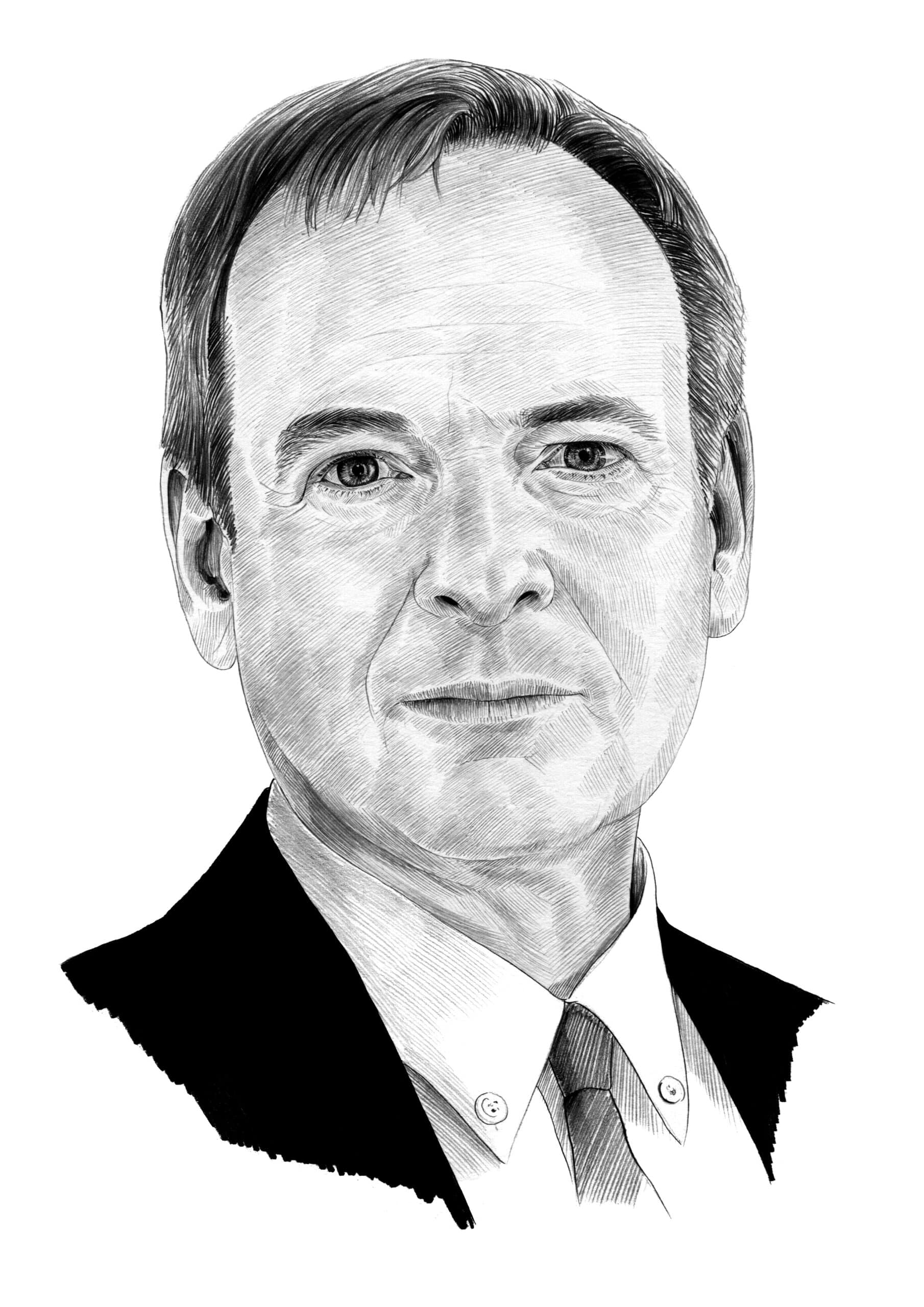
Illustration by Lauren Crow
Q: Given your extensive experience with U.S.-China educational exchanges — and the current hostility between Washington and Beijing — what role do you see scholarly exchanges playing in the future?
A: We have to start by recognizing that educational exchanges were never very good, in that they were lopsided. There were far more Chinese students coming to the United States than Americans going to China. There were never that many Americans taking the study of China or the Chinese language seriously. The numbers were misleading because they included college students who were taking one- or two-week trips to China in the summer — quasi-academic tourism. And they never went back and never looked at China again. So when you see statistics that had Americans studying in China in the tens of thousands annually, that’s misleading. There is little comparability between what American students were doing in China and what Chinese students coming to the United States were doing.
| BIO AT A GLANCE | |
|---|---|
| BIRTHPLACE | Bossier City, Louisiana |
| AGE | 61 |
| CURRENT POSITION | Director of the Kissinger Institute on China and the United States at the Woodrow Wilson Center for International Scholars |
Now the number of Americans studying Chinese in the United States and going to China has — I don’t know if you can “plummet” from a very low height — but it’s now very low. That trend predates the current troubles. It began with intensive American reporting on Chinese air pollution in 2008-09. That’s when the numbers took a big drop. So it’s due to air pollution, trade war, COVID — and now Cold War dynamics in the relationship, with the result that not only potential students, but their parents, read nothing about China but its potential dangers.
China is becoming hostile to foreigners within its borders. This trend has been given a big boost by Xi Jinping’s revision of the counter-espionage laws, which tell Chinese to view all Americans in China – all foreigners in China and all Chinese who interact with them – as spies until proven otherwise. That, combined with hostage diplomacy, the two Michaels [Kovrig and Spavor, Canadians who spent three years in Chinese prison while Huawei’s chief financial officer Meng Wanzhou awaited an extradition decision in a $20 million home in Vancouver], and the increase in exit bans, creates a hostile environment. If you go to the U.S. State Department website and look at its travel warnings, you’ll be advised to “Reconsider travel to China.”
| MISCELLANEA | |
|---|---|
| BOOK REC | The best explication of all that is glorious and admirable in the Chinese tradition is still Lin Yutang’s 1937 The Importance of Living |
| FAVORITE MUSICIAN | Tom Waits |
| FAVORITE FILM | Slapshot (1977) |
| MOST ADMIRED | Simon Leys |
This is tricky. On the one hand, China deserves the travel warning because of hostage diplomacy, counter-espionage paranoia and exit bans. Less reported is the fact that most of these activities in China are racialized. Most of the people who are subject to exit bans or arbitrary detention are ethnic Chinese business people from all over the world, with foreign citizenship, who happen to have Chinese ancestry. The likelihood of an American student studying at Beijing University running into those problems is quite low, but the threat and fear remain. They are major factors in bilateral relations.
I would travel to China – I would not hesitate to go if I were invited for something that made sense. But I don’t want anyone else taking risk – however small – on my say-so alone, although in 99 percent of cases they will be safe and it is important that exchanges continue.
There is reason for caution, but when I read that State Department warning I wonder if it hasn’t been slightly weaponized. China deserves the warning, for the reasons I’ve mentioned. On the other hand, issuing the warning seems like another way of deliberately reinforcing the global “Bad China” narrative – another way of blackening China’s already self-blackened image. So when leaders talk about the importance of people-to-people relations, it’s not what they mean at a time when China is so inhospitable and Americans so disinterested.
There is ‘Headline China’, ‘Headline US-China relations’, and then there is a much more complex lived reality that the headlines rarely reflect.
Regarding Xi Jinping’s xenophobic policies — Western textbook banning, mandatory political study sessions in schools, strengthened counter-espionage laws — do you see a change in the younger generation growing up under that policy compared to when you lived in China?
I don’t live in China anymore. It’s not wise to base judgments about China only on what I read – even on the best American reporting. Many times in the nearly four decades I’ve been working in China, there have been American media cover stories claiming that the zeitgeist in China has changed. I would go back to China and think, no, it’s really more or less the same, at least for ordinary people. There is ‘Headline China’, ‘Headline US-China relations’, and then there is a much more complex lived reality that the headlines rarely reflect.
I have heard from many American, Chinese, and third country friends who have been in China recently and have come back – people who know China well – that this time it really is different. They say it’s worse than the post-Tiananmen massacre period, which I knew well because I worked at the U.S. Embassy from 1989-91, and was involved in local communities. I hear that people are more frightened, that they have fallen silent, that teachers – this the media have covered – worry that some students might be reporting on them if they say something unorthodox. And, of course, Xi Jinping, working through Communist Party committees, has heavily re-politicized China’s always politicized campuses.
But, again, this is all in the headlines, and I don’t know how much of it is true. One of my frustrations is that I used to be able to see the world from inside the Chinese fish tank looking out, and now I look at it through a telescope. Obviously, knowing the real answer to your question is extremely important. I can’t provide it sitting here in Washington.
What I try to tell policymakers in D.C. is that Xi Jinping represents a major strand in the Chinese braid – the nationalist, isolationist, paranoid, totalitarian strand. But there are other strands – including that of liberal internationalists – that are equally thick. They are just not in the ascendancy right now. Think of Presidents Biden, Trump, Obama and Bush. I prefer some over others, but they are all American to the core. They represent different strands in the American braid. Xi represents a major strand in the Chinese braid which has modern and ancient precedents. But you’ve still got pro-democratic integrationists who are equally patriotic, equally Chinese, who are equally able to point to precedents in Chinese tradition, literature, and philosophy, who numerically are probably just as strong or stronger. I don’t know how strong each strand is. No one does. But Chinese progressives have not gone away. The notion that it is “Xi’s China” all the time, for all time, is clearly false. And the pendulum will swing again.
We are in danger of conflating Xi’s version of – and vision for – China with China itself. Xi matters greatly, but he does not embody China. The story of modern China is the story of change. The horrors of Maoism were followed by Reform and Opening under Deng Xiaoping. The Tiananmen Massacre was followed by a period of liberalization. The years prior to Xi’s ascendancy were the best time to be Chinese in history, not only in terms of material well-being, but also in terms of personal freedom – the ability to shape one’s own life. There was little political freedom, but most people were free to pursue their own happiness in the personal sphere and were hopeful for the future. The PRC was liberalizing. Engagement was working.

Then we had Xi Jinping’s move toward techno-totalitarianism and isolation, which we are still absorbing. His intentions were telegraphed all along, but they became crystal clear – even to China’s apologists – at the conclusion of the 20th National Communist Party Congress in October 2022. Since 1978, when Deng Xiaoping took over the reins, China had been a developmental state. China was rising. It was an astonishing story of human flourishing. Xi Jinping has said, No, we are not a developmental state. We are a highly ideological security state.
It is a fundamental narrative change and we are still soaking it in. It is the reason that Canada, Europe, more and more countries in East and Southeast Asia, are drawing closer to American-style skepticism of China. The Chinese people are self-insuring, saving money, getting their money out, because they, too, are onboarding the fact that they no longer live in a country that prioritizes development. But that doesn’t mean the more liberal Chinese strand has vanished.
Can you say something about your relationship with Henry Kissinger and your role as director of the Kissinger Institute at the Wilson Center?
Many people assume that the Kissinger Institute is led by or in some sense reports to Henry Kissinger, which is not true. Dr. Kissinger has been helpful to us on a number of occasions. I first met him, not at the Wilson Center, but in 1997 when Chinese Communist Party leader Jiang Zemin came to the United States. That was a big trip. In those days, when Chinese leaders came to Washington, they would make a major policy speech. Kissinger hosted Jiang’s speech on U.S.-China relations and I was hired to interpret for Dr. Kissinger. He made opening remarks in English and I rendered his welcoming remarks into Mandarin. This put a gun to my head because there were a lot of people in the audience whose Chinese was as good as mine, who would know if I screwed up. This was when President Clinton and Jiang were talking about a constructive strategic partnership for the 21st century. The question of the moment was: what on earth does this mean?
What is Kissingerian about the institute is our guiding belief that management of bilateral relations must be founded in historical and cultural knowledge of both China and the United States. It must be founded in knowledge of the history of the relationship itself.
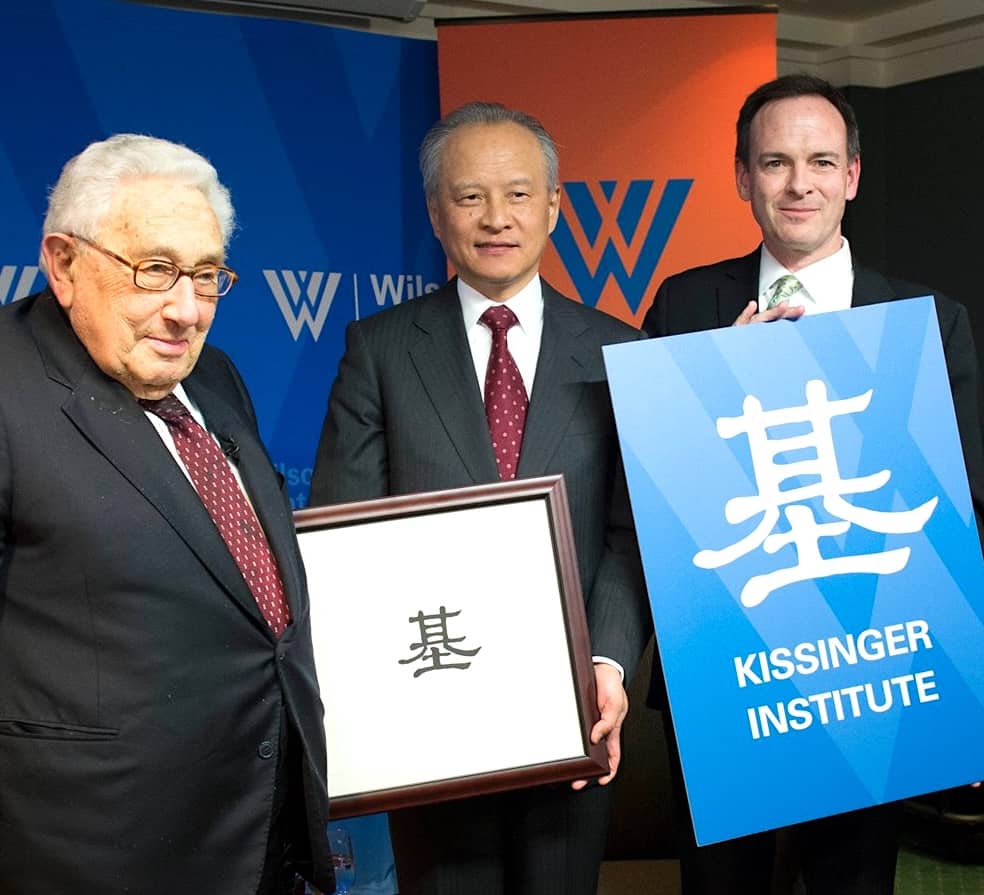
Washington policymakers often begin by asking “What do we want the other country to do?” The prior question is why does the other country see its interests and position in the world in the way it does? What is its historical experience and cultural background? What are its myths? We focus on that at the Kissinger Institute. We emphasize Chinese-language sources and discourse. We think that cultural and higher educational factors are important and too often overlooked in public discussions of the relationship. Security, economic, and technological issues are, of course, vitally important, but we won’t get China policy right unless we look at China through a broader, more humanistic lens.
You are an old-fashioned public intellectual. How do you view your role in our field, and what element does your Catholic upbringing and faith play?
I might be old-fashioned, but I’m not an intellectual. I like graphic novels and pop music.
The faith question is hard to answer, but it may be what inclines me to view China in a humanistic context. We now view China, almost exclusively, as a security threat, but we used to approach it in a spirit of curiosity, with fellow-feeling and openness to the new. The view of many of us who have lived in China for years, and who have experienced its complexity and dynamism, is that we should give as much attention to the welfare of individual Chinese as we do to our security concerns. What Xi has made of China is heartbreaking as well as dangerous.

Because we fear China – often with good reasons – we are in danger of seeing it, as we have in the past, as a land of brainwashed automatons, as a hive-mind, as the Borg, bent on our destruction. We need to remember that China is still changing in unpredictable ways, and that it is made up of ordinary people. I know that sounds trite and sentimental – and preachy – but if we lose track of China’s humanity we will come closer to war. That is why I ask my students and people I work with in corporations and universities, and especially on Capitol Hill, to conduct a thought experiment: Any time you are reading an article on China and encounter the word “China” or “Chinese,” replace that with “one-fifth of humanity” and see how that changes your response. This won’t solve our problems in the South China Sea, but it may balance our perspective.
I am not saying China isn’t our greatest geostrategic challenge. It is. But there is a lot of over-the-top rhetoric and gross mischaracterization in our discussion of China. And there is something else in our approach – perhaps in our attitude – that worries me. I sense, and many of my friends and colleagues sense, a low level, constant current of racism running through our otherwise justified discussions of the challenges emanating from China. I’m not talking about the outright racism that results in old women being attacked on the streets of New York or San Francisco. I mean a lurking, unstated us-versus-them yellow peril-ism that imbues our framing of the China threat.
The CCP already claims that there is nothing to America’s threat perceptions of China but American racism and America’s desire to maintain its hegemony. That’s nonsense. I don’t want to feed that beast.
I have never raised this publicly, for two reasons. The first is that I can’t prove it. As soon as I say there is an element of racism in our China discourse, people will say, where is the evidence? Show me. And I can’t. I just sense it as an ingredient in the mix. It is dangerous to raise the specter of racism without proof. But if we wait until the proof is incontrovertible, it will be too late.
The second reason I haven’t said this until now is that I don’t want my words used by the Communist Party for anti-American propaganda. The CCP already claims that there is nothing to America’s threat perceptions of China but American racism and America’s desire to maintain its hegemony. That’s nonsense. I don’t want to feed that beast.

But the racism is there and is becoming more dangerous. Look at these state laws banning non-citizens from buying real estate in the name of combatting the Chinese Communist Party. One challenge which everyone who follows this relationship for a living faces is: how can we accurately describe this worsening relationship and the dangers of Xi-ist totalitarianism without contributing to anti-Chinese-American and anti-Asian-American racism. Even if you make all of the necessary disclaimers – and most of us do – there is almost no way to ensure that declining relations don’t lead to increasing racism.
China is also racializing the rivalry. In China you don’t have people beating up little old American ladies in the street. But there is an increasing discourse in China about “Anglo-Saxons” and their inherent violence and hegemonism. We see the CCP’s racism in Foreign Minister Wang Yi’s odious remarks before the Camp David summit, when he said to Japanese and Koreans: “No matter how blonde you dye your hair, no matter how sharp your nose gets, you will never be white.” He was calling them race traitors.
What can we read into the recent high-level personnel changes in China? The sudden removal of Xi Jinping’s ally Qin Gang as Foreign Minister, the purge of the two highest-ranking generals in charge of China’s nuclear missile arsenal, and the disappearance of Defense Minister Li Shangfu?
Xi Jinping has made a series of very bad judgments. For much of his first ten years, the myth that was broadly bought into in China was that he was all-knowing, all-seeing, and perfectly wise. The quintessence of the Confucian Sage. He also posed as Connoisseur and Protector-in-Chief of China’s sacred language and culture, despite scant evidence that he’s versed in these things. But within China, and to some degree outside of China, this was bought into. We then had the whole “Uncle Xi” phase of presumed folksiness – a quality I never saw in him. And there was a great deal of writing in the peak-Xi Jinping era about Xi’s charisma and charm. Xi’s charisma? What are they talking about!

Credit: Xinhua via Getty Images
But with China’s COVID lockdowns, the sudden reversal of those policies, and the desperate state of the Chinese economy, the bloom is off the Xi Jinping rose. China’s reputation in much of the world has suffered under Xi’s leadership. The crowning disaster of Xi’s foreign policy was his decision to partner with Putin and double down on support for Russia’s invasion of Ukraine at every opportunity since. Even prior to that, China was isolated not only from the United States, but from developed democracies all over the globe. China’s Indo-Pacific neighbors – who value their economic relations with China – are not interested in greater Chinese influence. They prefer the United States as an offshore balancer.
So Xi has failed repeatedly, and now it’s very clear that even his intra-Communist Party political judgment is flawed. Qin Gang, the Rocket Corps generals, Defense Minister Li Shangfu – these are only his most public personnel misjudgments, and these are his people put in place recently. Apparently there is no vetting process.
His public failures of judgment are consequential for the Communist Party itself, for China’s foreign policy, for the well-being of the Chinese people. I am told that there is constant grousing in China about his leadership.
I’m not espousing a theory of collapse or revolution. It appears that there is still a lot of support for Xi Jinping. Certainly nobody sees a practicable alternative to his leadership. He lost the intellectuals and the creative class a long time ago. But it appears that in the PLA, the security services, and among blue collar workers, agriculturalists, second and third tier cities, Xi Jinping still has strong support.
But that support does not mean the people of China understand and approve the direction he’s taking the country in. Those are two different things. I have spent a lot of time over 33 years with mostly urban, educated, well-informed, ambitious, patriotic, internationalized Chinese.Their vision was a China that was spoken of admiringly along with Tokyo, Seoul, Paris, London, Milan, New York and Los Angeles. And Xi Jinping is giving them Moscow, Tehran, Pyongyang, Havana and Caracas. This is not what the people envisioned. This is not what they’ve been working for.
If we want to know how China is going to change, we should direct our attention to women. I do not say that to be politically correct; women are clearly the change agents in China. You see this in the non-death of the #metoo movement, even though it hasn’t yet won a single case. You see it in female stand-up comics who are mocking the patriarchy and filling bars. You see it in female rock groups who are doing the same in growing numbers. Men sometimes walk out in anger, but men also stay and come back for more.
For Xi, these cultural forms, as aspects of the United States, of the West, of the Enlightenment, are an existential threat to the Communist Party.
Most importantly, women have found a way to control their fates and maximize their agency that even Xi Jinping and the Communist Party can’t do anything about. They are voting with their marriageability and fertility. This is a major development. We need to watch these social fissures. We need to watch the 躺平 [tangping – “lying flat”] and 摆烂 [bailan – “let it rot”] phenomena – young Chinese dropping out of mainstream society because their ideals cannot be achieved.
One aspect of this that must gall Xi Jinping is that the #metoo movement, standup comedy, rock concerts – none of these are of Chinese origin. These are all Western cultural influences.
For Xi, these cultural forms, as aspects of the United States, of the West, of the Enlightenment, are an existential threat to the Communist Party. This may prove to be true. But, so far, the CCP’s leadership has proven to be pretty resilient.

Scott Savitt is a former foreign correspondent for The Los Angeles Times and United Press International in Beijing. His articles have been published in the Washington Post, Wall Street Journal, New York Times, and others.

